
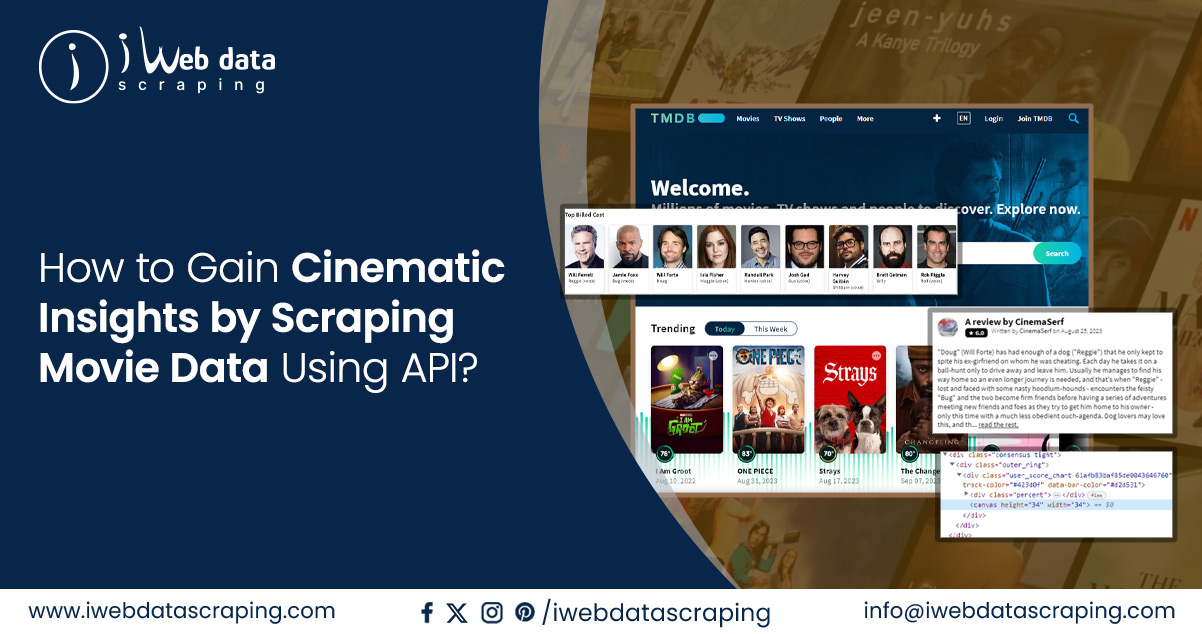
An Application Programming Interface (API) dedicated to movies, commonly known as a Movie API, encompasses a meticulously crafted ensemble of protocols and tools. Its primary objective is to empower developers by furnishing them with the means to effortlessly acquire diverse data pertaining to movies, TV shows, actors, directors, and associated elements. This reservoir of data is sourced from a centralized database, sparing developers the need to engage in manual data collection or upkeep. Movie APIs find widespread utility across applications, websites, and services that revolve around showcasing, presenting, or engaging with content related to the cinematic world. By enabling developers to navigate this extensive reservoir, Movie API data scraping fosters dynamic access to an expansive repository of movie-related information, all achieved through a structured and programmable interface.
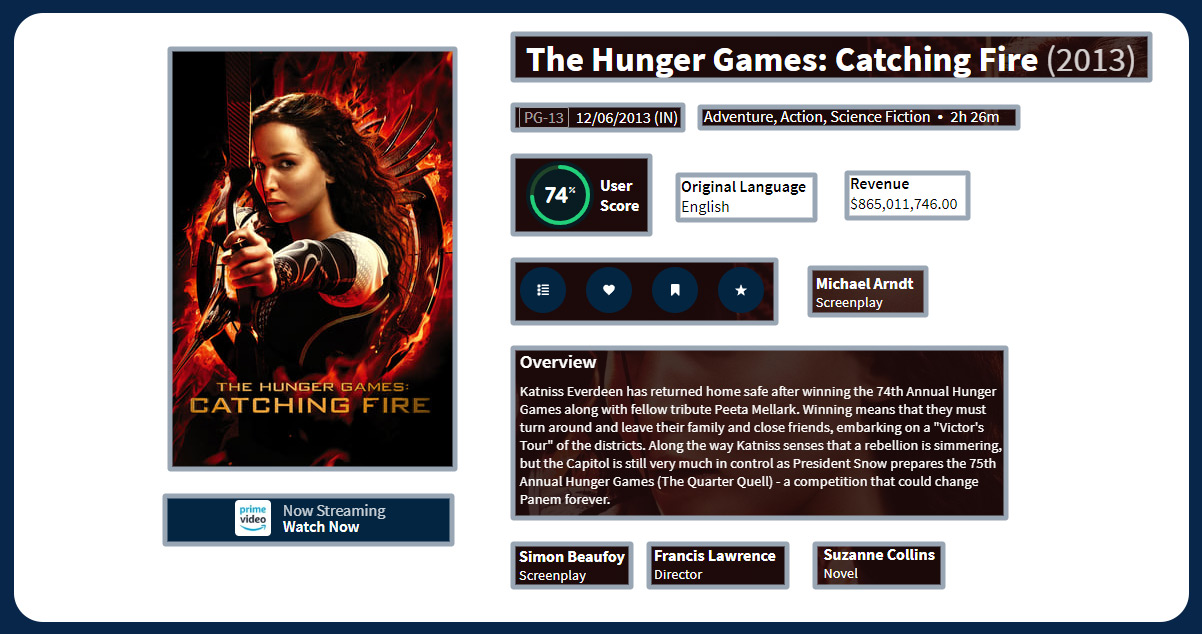
The following list of data fields is available from scraping movie data.
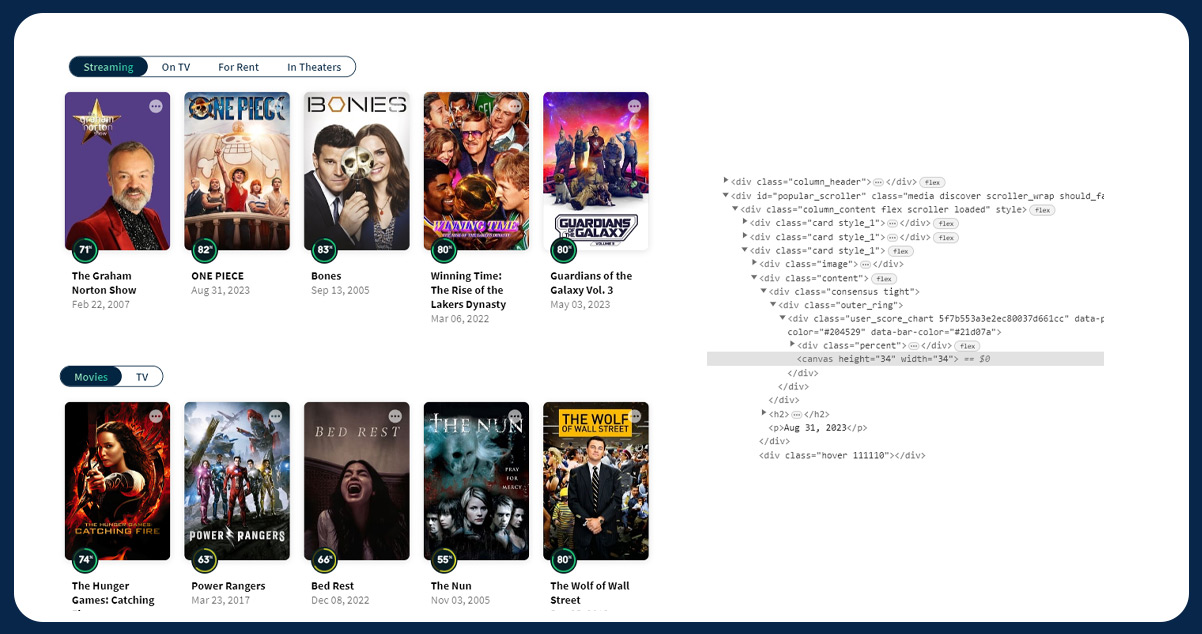
Data Retrieval: Scraping movie data using API offers endpoints for developers to request specific data. It encompasses a broad range of information, including intricate details about movies, TV shows, actors, genres, release dates, ratings, plot summaries, posters, trailers, and more. Developers can access highly detailed and up-to-date cinema-related content by interacting with these endpoints.
Integration: Integrating a Movie API into applications or websites involves seamlessly incorporating its functionalities. It is achievable by making HTTP requests to the API's designated endpoints. These requests retrieve data in diverse formats such as JSON or XML. This integration enables developers to dynamically access and incorporate movie-related information into their platforms, enriching the user experience.
Usage: Movie data scraping services are pivotal in elevating user experiences across various applications. Whether it's movie discovery platforms, review websites, streaming services, or entertainment blogs, these APIs facilitate the display of real-time and relevant information to users. By leveraging Movie APIs, developers can ensure their users can access the latest insights and updates about movies and related content.
Popular Movie APIs: Several prominent APIs are meant for movie-related data, each catering to specific needs:
The Movie Database (TMDb) API: This API boasts an expansive repository of movie and TV show data. It encompasses intricate information about the cast, crew, images, and more, enriching applications with comprehensive details.
OMDb API: Providing access to a vast collection of movie and TV show data, the OMDb API is instrumental in acquiring metadata, ratings, and concise plot summaries.
IMDb API: Offering access to IMDb's movie and TV show data (primarily for non-commercial use), this API grants insights into one of the most renowned databases in the industry.
Trakt API: Focused on tracking user interactions with movies and TV shows, the Trakt API facilitates personalized recommendations based on viewing history.
Authentication and Rate Limiting: Authentication is often a prerequisite for utilizing certain movie APIs. Developers typically need to acquire an API key, a credential used to verify requests and monitor usage. Additionally, rate limiting ensures fair utilization of resources. It restricts the number of requests a developer can make within a specific time frame, preventing undue strain on the API's infrastructure.
Documentation: Comprehensive documentation is a hallmark of a well-designed API. It provides developers with clear guidelines on effectively employing the API's functionalities. It includes exhaustive information about available endpoints, request parameters, acceptable response formats, authentication methodologies, and usage limits.
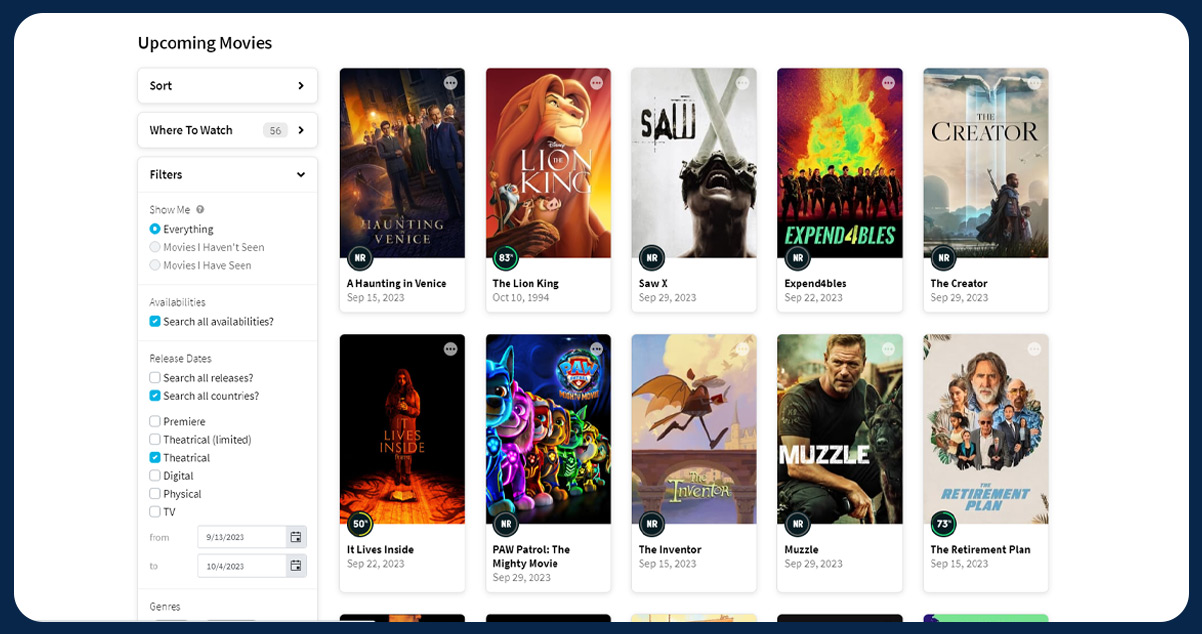
Script Your Movie Concierge: Imagine having your AI-powered movie concierge that recommends films based on your mood, preferences, and watching history. By scraping movie data, you can curate a personalized movie recommendation engine that suggests hidden gems, all-time classics, or recent releases tailored to your taste.
Predict Box Office Hits: Combine historical movie data with advanced analytics to predict potential box office successes. Develop algorithms that analyze factors like genre, director, cast, release timing, and social media buzz to forecast the next blockbuster hits before they even hit theaters.
Explore Cinematic Trends: With access to comprehensive movie data, you can delve into the ebb and flow of cinematic trends over time. Unearth how genres, themes, and visual styles have evolved, allowing you to create articles, infographics, or interactive visualizations that take your audience through cinematic history.
Enhance Virtual Film Festivals: Organize virtual film festivals with a twist! Web scrape movie data to curate a lineup of films around specific themes, like "underdog stories" or "mind-bending plots." Add trivia, behind-the-scenes insights, and audience polls to create an immersive online film festival experience.
Create an Ultimate Movie Database: Imagine building the ultimate online repository of movie knowledge. Scrape data from multiple APIs to create a comprehensive database that covers not only mainstream films but also indie, international, and cult classics. It will help users explore trivia, actor biographies, filming locations, and more.
Reimagine IMDb Rankings: Challenge traditional movie ranking systems by incorporating additional criteria like social media sentiment, critical reviews, and audience engagement metrics. Use scraped data to craft an alternative movie ranking that reflects a more diverse and dynamic perspective.
Cinematic Word Clouds: Generate captivating word clouds using movie scripts. Visualize the frequently used words in specific genres, directorial styles, or periods. This unique approach could lead to intriguing insights into the language of storytelling.
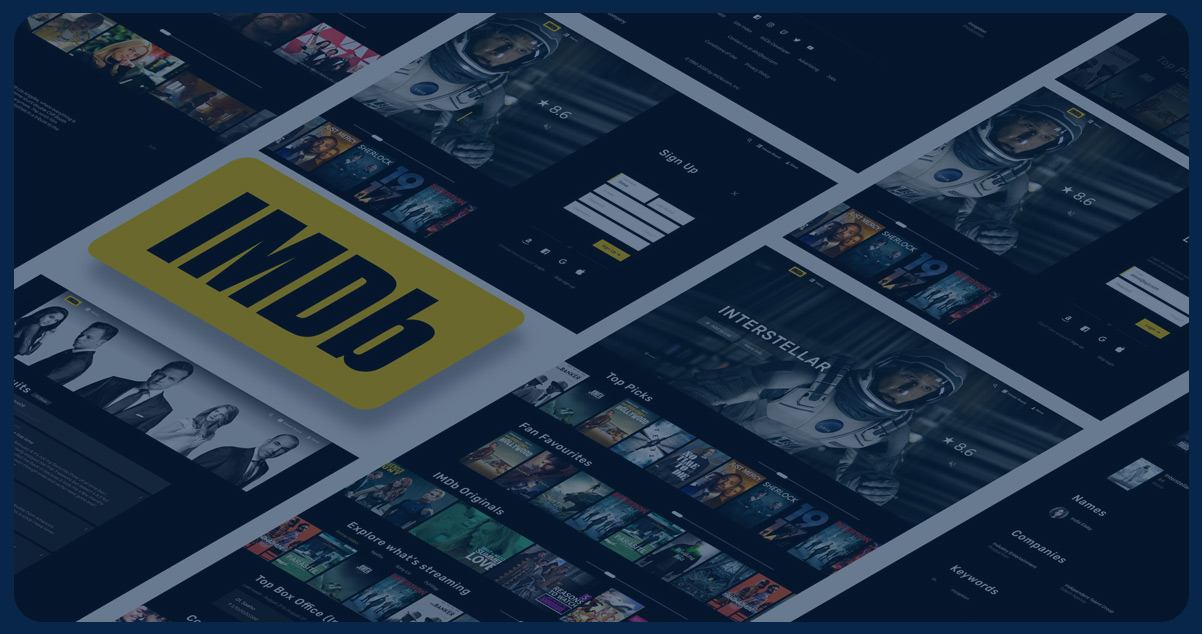
Numerous alternatives to IMDb, such as TMDb and OMDb, along with open movie database app scraping APIs, provide direct access to IMDb's extensive repository. These APIs and web services are invaluable tools for creating an ideal website, mobile app, or software solution. They enable you to harness IMDb's vast dataset to craft platforms that excel in functionality, offering your users enriched insights and seamless experiences.
Conclusion: Scraping movie data using APIs opens movie enthusiasts, developers, and businesses opportunities. The wealth of information available through platforms like TMDb, OMDb, and others empowers us to create innovative applications, websites, and services that cater to diverse needs. These APIs offer a dynamic playground for creativity and insight, from personalized movie recommendations to predicting cinematic trends. By seamlessly integrating with these APIs, we can transform raw data into engaging user experiences, driving informed decision-making and enhancing how we interact with movies.
For further details, contact iWeb Data Scraping now! You can also reach us for all your web scraping service and mobile app data scraping needs